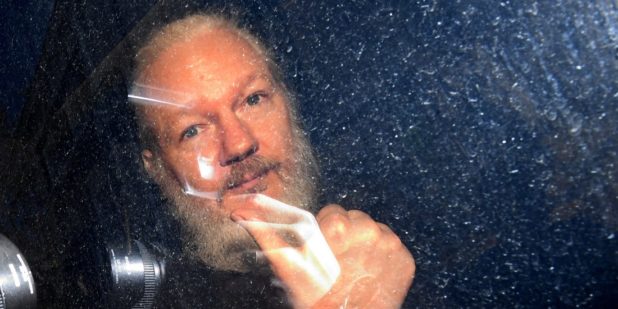Andrew Anglin
Daily Stormer
January 22, 2020
It was kind of stupid for Glenn Greenwald to report on corruption in Brazil while living in Brazil.
I’m not sure what he thought was going to happen.
I thought the whole point of living in Brazil was so the US wouldn’t be able to go after him for reporting on the corruption in the US?
I typically appreciate his work, but we must consider: maybe he’s just a gay Jew who likes playing the victim?
Federal prosecutors in Brazil on Tuesday charged the American journalist Glenn Greenwald with cybercrimes for his role in bringing to light cellphone messages that have embarrassed prosecutors and tarnished the image of an anti-corruption task force.
In a criminal complaint made public on Tuesday, prosecutors in the capital, Brasília, accused Mr. Greenwald of being part of a “criminal organization” that hacked into the cellphones of several prosecutors and other public officials last year.
Mr. Greenwald, an ardent critic of Brazil’s far right president, Jair Bolsonaro, is a deeply polarizing figure in Brazil, where his work is lionized by leftists and condemned as partisan and heavy handed by officials in the Bolsonaro administration.
The news organization Mr. Greenwald co-founded, The Intercept Brasil, published articles last year based on the leaked cellphone messages that raised questions about the integrity and the motives of key members of Brazil’s justice system.
The articles cast doubt on the impartiality of a former judge, Sérgio Moro, and of some of the prosecutors who worked on a corruption investigation that landed several powerful political and business figures in prison.
Among those charged in connection with the corruption investigation was a former president, Luiz Inácio Lula da Silva, a popular leftist whose conviction paved the way for the election of Mr. Bolsonaro. Mr. Moro was the judge who handled that case, and he is now Mr. Bolsonaro’s minister of justice.
The case raises concerns among journalists and advocates for a free press because journalists often rely on confidential or leaked information, sometimes obtained by whistle-blowers or hackers.
In fact, Mr. Greenwald has been part of a team that won some of the most important prizes in journalism — the George Polk Award and the Pulitzer Prize for public service — for his role in reporting on documents describing government surveillance that were passed on to him by Edward J. Snowden, a former contractor with the National Security Agency of the United States who later faced espionage charges in connection with the leak.
In a statement Mr. Greenwald called the charges “an obvious attempt to attack a free press in retaliation for the revelations we reported about Minister Moro and the Bolsonaro government.”
Mr. Greenwald, who has not been detained, said he intended to continue publishing and cast the case against him as a test of Brazil’s democracy.
“We will not be intimidated by these tyrannical attempts to silence journalists,” he said.
In a 95-page criminal complaint, prosecutors say that The Intercept Brasil, the news organization Mr. Greenwald co-founded, did more than merely receive the hacked messages and oversee the publication of newsworthy information.
Citing intercepted messages between Mr. Greenwald and the hackers, prosecutors say the journalist played a “clear role in facilitating the commission of a crime.”
For instance, prosecutors contend that Mr. Greenwald encouraged the hackers to delete archives that had already been shared with The Intercept Brasil, in order to cover their tracks.
Prosecutors also say that Mr. Greenwald was communicating with the hackers while they were actively monitoring private chats on Telegram, a messaging app. The complaint charged six other individuals, including four who were detained last year in connection with the cellphone hacking.
Legal experts and leftist politicians criticized the decision to charge Mr. Greenwald, calling the evidence outlined against him thin.
Thiago Bottino, a legal expert at Fundação Getúlio Vargas University in Rio de Janeiro, said prosecutors have not described evidence that suggests Mr. Greenwald broke the law.
“There’s nothing in the complaint showing that he helped or guided” the hackers, he said.
…
The charges came as a “huge surprise,” Mr. Greenwald said in an interview on Tuesday, because the Federal Police issued a report in December that cleared him of having engaged in criminal conduct related to the phone hacks.
Mr. Greenwald said he had been methodical in his dealings with the source who gave him the leaked chats, mindful of the lessons he had learned in the Snowden case.
“The one thing I could not do is give direction,” Mr. Greenwald said. “That’s crossing a line. I was very careful.”
This is basically the exact same thing that the US government has charged Julian Assange with, so it shouldn’t come as any surprise.
The new strategy for shutting down leakers and whistle blowers is to just prosecute whoever publishes the leaks. It’s not really creative, but there is no reason to believe that it won’t work and it has certainly become a necessary tool in this current age.
Because although this is the most corrupt age of man, the bigger problem is the logistics of leaking.
Whereas in the old days, you could leak a file or even a briefcase full of files, but hardly more, you can now leak entire government databases – millions upon millions of pages, potentially – on a device the size of a fingernail. Furthermore, these databases can be searched with “ctrl+f,” making combing through millions of pages of documents for the damning bits of evidence something one man can do alone.
The facts of the situation mean that governments were required to create new safeguards for their dirty dealings, and one of those new safeguards is intimidating and prosecuting journalists.
 Daily Stormer The Most Censored Publication in History
Daily Stormer The Most Censored Publication in History




